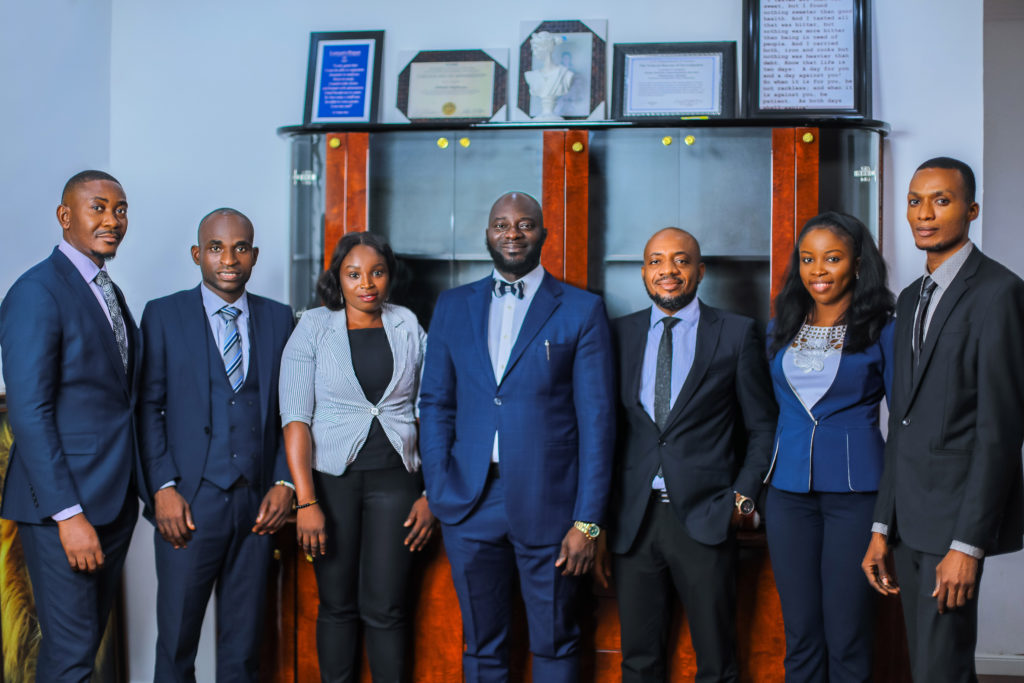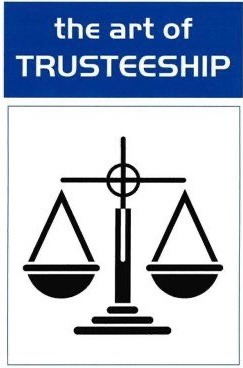SOCIAL MEDIA: EMOJIS AND LEGAL IMPLICATIONS OF THE USE OF SAME
The writing system employed by the ancient Egyptians for inscriptions on statues, coffins, sarcophagi, and walls of temples and tombs was called hieroglyphics. Either for the gods or the afterlife, these were made for all eternity. Some are expertly carved, resembling artwork rather than text. Approximately 500 frequent signs are known as hieroglyphics. These were the formal writing system used in ancient Egypt for writing the Egyptian language.
With the advancement in science and technology, particularly the advent of social networking, wordless communication has blossomed with the use of:
Emoticons (keyboard-generated), Emojis (software-generated), GIFs, stickers, memes and pictures.
The use of computerized social networking in court is becoming more and more common, and the variety of case law that is emerging globally suggests that there are countless legal ramifications that could arise from its application.
These have so much similarities with hieroglyphics. It will be safe to say that Emoticons, Emojis and GIFs are modern applications of hieroglyphics.

PROBLEMS SURROUNDING THE INTERPRETATION OF EMOJIS
Effective communication relies on the sender expressing an exact idea to the receiver, which can be problematic when the receiver cannot interpret the message. Emojis, as wordless communication, can have vague or non-existent meanings, depending on the circumstances.
Emoji interpretation is hindered by their lack of universal meaning due to cultural and geographical differences. For example, the hands-up emoji in China means ‘praise’, while the smiley face emoji in China means ‘stay away’.
Emoji interpretation is complicated by cross-platform/OS discrepancies. For instance, the astonished face emoji, which appears in 2016 variations, may not be interpreted as “astonished” by Google, Facebook Messenger, or Samsung. Despite efforts to unify emoji implementations, there are still differences that need to be considered. The best example of this specific issue is the hypothetical emoji representation of the perplexity in the famous PEERLESS CASE. [RAFFLES VS. WICHELHAUS (1864) 2 Hurl. & C. 906].
During contract negotiations, the sender replies to a contract offer using language that could be taken as an acceptance, but he or she also includes an emoji that is meant to convey a sarcastic but contradictory message. But the recipient sees an emoji that doesn’t convey sarcasm in the same way because of how the recipient platform interprets the emoji.
The recipient understandably misinterprets the sender’s intended sarcasm due to the cross-platform disparity, assumes the sender accepted the offer, and negatively adjusts her stance as a result. Is the contract still in effect? Is a “meeting of the minds” possible?
LEGAL IMPLICATIONS OF THE USE OF EMOJI
Emojis have come to stay in the use of our daily communications. They are becoming more and more acknowledged as valid forms of communication, not just as embellishments or supplements to speech.
Emojis are graphic representations of feelings, thoughts, and expressions that people can use to give their messages more depth and significance. They can aid in setting the mood, introducing humor, young energy, or feelings that can be challenging to communicate through words alone.
Recent emoji misinterpretations have resulted in a number of unforeseen consequences, particularly in encounters at work, and some of these problems have begun to make their way into court to be resolved. Emojis are frequently used in both formal and informal conversations, often without the recipient’s context or interpretation in mind. Is it a threat to terrorism, for instance, to use an emoji representing a gun, bomb, or knife? Is sending a coworker a heart emoji a form of sexual harassment?
Can an emoji be defamatory? These are only a handful of the questions that have come up regarding how judges should interpret the use of emojis. The lack of a uniform meaning for emojis makes their interpretation extremely difficult due to different cultural viewpoints. What is considered appropriate by one individual may be extremely offensive to another. For example, the thumbs-up emoji, which typically denotes agreement, acknowledgement, and reciprocal participation in certain contexts, is viewed as impolite and harsh in other contexts, particularly by younger users.
Given that emojis are open to several interpretations, it is obvious that utilizing caution while using them—especially in professional correspondence—cannot be overstated. It’s unlikely that many emoji-related issues will surface in the legal system in the near future, notwithstanding the dearth of judicial decisions that thoroughly analyze emoji interpretations or even outline the methods for doing so. We believe this because, despite the informal nature of their use, emojis are quickly becoming acknowledged as a legitimate means of corporate communication. This is demonstrated by a few recent rulings from international courts, which we will cover in more detail later.
Unfortunately, Emojis in Nigeria are underexplored in law due to lawyers’ lack of consideration for their impact on written communication. There is currently no case law addressing issues arising from emojis or their use in daily transactions, highlighting the need for further investigation.
- EMOJIS AND CONTRACT FORMATION
Depending on the circumstances, using an emoji can result in the creation of binding relationship between parties. The Court of King’s Bench in Saskatchewan, Canada, SOUTH WEST TERMINAL LTD. V ACHTER LAND 2023 SKKB 116 ruled that the use of a thumbs-up emoji in a text message satisfied both the writing requirement of Saskatchewan’s Sale of Goods Act(S. 6(1) of The Sale of Goods Act) and also constituted acceptance of an offer even though the defendant insisted that his use of the thumbs-up emoji in a text message only served to acknowledge receipt of the draft contract that was shared, but did not signify his acceptance of its provisions. In reaching this decision, the Judge considered the similar nature of past correspondences between both parties and concluded that a reasonable person would understand the emoji as an acceptance of the contract terms offered. The judge, in compelling the farmer to pay $61,442 for breach of the contract, reasoned that the emoji is just as valid as a signature and that courts must adjust to the “new reality” of how people communicate
In other words, casually sending a thumbs-up emoji, a handshake emoji or even a smiley face in response to a message putting forth a proposal or offer to do business may be the same as stating, “I agree to your terms.” Likewise, sending a thumbs-down or a sad or angry-face emoji could be equivalent to a rejection of the terms put forward by the offeror. At the minimum, replying to such a message with an emoji may convey contractual intent.
Also in Israel, the case of DAHAN VS. SHACHAROFF [HERZLIYA SMALL CLAIMS Ct. Feb. 24, 2017] comes to mind wherein Judge Amir Weizebbluth in his judgment stated:
‘The text message sent by the defendant… included a smiley, a bottle of champagne, dancing figures and more. These icons convey great optimism. Although this message did not constitute a binding contract between the parties, it naturally led to the Plaintiff’s great reliance on the Defendant’s desire to rent his apartment…These symbols which convey to the other side that everything is in order were misleading.’
The positive emojis signaled interest, according to the judge, and the landlord reasonably relied on the defendant’s ‘optimistic language’. The judge awarded the misled landlord damages of over 2,200 dollars.
2. EMOJIS AND DEFAMATION
Emojis may seem harmless, but recent case of BURROWS VS. HOUDA, [(2020) NSWDC 485] suggests that emojis can give rise to an action for defamation because they can convey a defamatory meaning. Here, the defendant tweeted a link to an article about the plaintiff’s disciplinary case with a zipper-mouth face emoji, the judge, referencing an online emoji dictionary, opined that most social media users would have negative impressions of the plaintiff as the tweet conveyed false and defamatory assertions, including that she had been disciplined due to misconduct.
3. EMOJIS AND CRIMINAL INTENT
Some Emojis have been shown to depict criminal intent of the sender. Such emojis as the fist, gun, etc are classified in this category and could be interpreted as expressing the criminal intent to attack you and put you in the hospital. This was the exact message sent by two men taken into custody for stalking charges in South Carolina.
In a Massachusetts murder case, it was successfully argued that the defendant’s use of an emoji with Xs for eyes coupled with the nickname of the victim suggested a premeditated homicide and notaccidental death as the defendant argued.
4. EMOJIS AND THREATS
Perhaps the most troubling use of emoji is where it is unclear whether they connote, modify or amplify a criminal threat. This is the main point of decision in New York City wherein a teenager was arrested for making terrorist threats after posting a Facebook status with a gun emoji pointed at the emoji of a police officer.
This was also the case in New Zealand where a judge considered the role of the emoji in a Facebook message sent by a man to his ex-partner. The man wrote, “you’re going to f***ing get it” along with an airplane emoji. Concluding that the message and emoji generally conveyed that the defendant was “coming to get” his ex-partner, the judge sentenced the accused to 8 months jail on a charge of stalking.
Emojis also feature in cases involving cyber bullying and harassment.
5. EMOJIS AND SEXUAL HARASSMENT
The use of certain emojis in communications can lead to sexual harassment claims or grounds a lawsuit. Sexual harassment is punishable under both Federal and State laws in Nigeria, and the National Industrial Court of Nigeria has been praised for taking the lead in addressing workplace sexual harassment through its judgments and rules of court. Sexual harassment includes unwelcome displays of sexually explicit pictures, objects, jokes, insults, or graphic comments about a person’s body (Section 46 of The Violence Against Persons (Prohibition) Act 2015 states that sexual harassment means “unwanted conduct of a sexual nature or other conduct bases on sex or gender which is persistent, serious and demeans, humiliates or creates a hostile or intimidating environment and this may include physical, verbal or non- verbal conduct.” See similar provision in Section 63 of the Ekiti State Gender – Based Violence (Prohibition) Law 2019). The court will always consider the surrounding facts and context of use, such as the type of emojis and frequency of incidents, when arriving at a reasonable decision. However, it is unlikely that the use of emojis cannot contribute to the finding of sexual pervasiveness in a modern-day workplace. The court looks at the surrounding facts and analyzes the totality of the circumstances, including the emojis used in denying the defendant’s motion for judgment on the pleadings.
The red lipstick emoji was a topic of controversy in a California case. The red lipstick emoji became an issue in Stewart vs. Durham [3:16-CV-744-CWR-LRA (S.D. Miss. Feb. 9, 2017)], a California claim of sexual harassment where a female potential employee allegedly responded to sexually suggestive texts with a red-lipstick kiss emoji, raising the issue of whether the kiss implied that she welcomed his advances.
6. HOW COURTS ATTEMPT TO INTERPRET THE USE OF EMOJIS
Emojis in daily transactions prompt court interpretation in matters. Courts attempt to understand context, but may only consider emoji meaning in self-explanatory cases. An example is the US case of COMMONWEALTH OF PENNSYLVANIA VS. FOSTER [J-6-2019, (Pa. Aug. 20, 2019)], where a defendant on probation for a drug-related conviction raised the suspicion of his probation officer when he posted photographs depicting guns, drugs and money along with three pill emojis.
Courts often interpret wordless communication, relying on surrounding circumstances and examining emojis like smiles and sad faces. These messages may seem innocent or harmless, but their meaning may vary depending on the context and community used, affecting the sender and recipient’s interpretation. In the 2014 US case of GHANAM VS. DOES, [SC: 148726 (Mich. Dec. 23, 2014)], the court had to analyze the facts and circumstances surrounding a defendant’s use of the sticking out tongue emoticon within a communication in a defamation case. Based on the hyperbole surrounding the emoticon, and the emoticon itself, the court found that the communication was a joke and negated the defamation claim in the defendant’s favor.
On the other hand, in 2019, in COMMONWEALTH VS. DANZEY, [Pa. Super. Ct. 2019], the Superior Court of Pennsylvania upheld the conviction of a defendant for stalking and harassment that was based in part on a social media post whose wording demonstrated the defendant’s state of mind, revealing his criminal intent, despite the words being accompanied by the common smiley face emoji.
7. EMOJI FORENSICS
Emojis are increasingly used in courtrooms due to their widespread use in digital communications. This has led to the need for a specialized field called “emoji forensics,” reflecting societal norms and allowing law to adapt to technological advancements for judicial inquiry.




